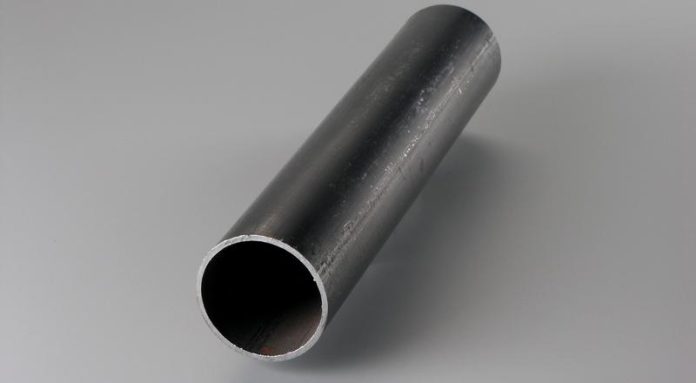In the construction and manufacturing sectors, the demand for materials that offer strength, durability, and resistance to corrosion is higher than ever. Among the most widely used materials in these industries are ERW GI pipes. These pipes have become a preferred choice for engineers and builders due to their excellent mechanical properties, affordability, and adaptability to various industrial applications. This article explores in depth the features, manufacturing process, and industrial uses of ERW GI pipes.
What is an ERW GI Pipe?
An ERW GI Pipe is a type of steel pipe made through Electric Resistance Welding (ERW) and coated with a layer of zinc for protection against corrosion. The term “GI” stands for “Galvanized Iron,” referring to the galvanization process in which a zinc coating is applied to prevent rusting and enhance the pipe’s lifespan.
For industries seeking reliable and long-lasting galvanized piping solutions, ERW GI Pipe products from Cortec Steel are an excellent choice. These pipes are manufactured using advanced technology and meet international quality standards, ensuring superior performance in both industrial and structural applications.
The Manufacturing Process of ERW GI Pipes
The production of ERW GI pipes involves multiple carefully controlled stages to ensure strength, precision, and corrosion resistance:
- Steel Coil Preparation: The process starts with high-quality steel coils, which are unrolled, leveled, and trimmed to the desired width.
- Forming and Welding: The steel strip is gradually formed into a cylindrical shape, and the edges are welded together using the electric resistance welding method. This technique produces a clean, strong, and continuous weld seam without the need for filler material.
- Surface Treatment: Before galvanization, the pipe surface is cleaned to remove scale, oil, and impurities, ensuring proper zinc adhesion.
- Galvanization: The cleaned pipes are coated with zinc, either through a hot-dip process or electro-galvanization, to form a protective layer that shields the steel from moisture and corrosion.
- Inspection and Testing: Every pipe undergoes strict quality checks, including mechanical testing, pressure testing, and visual inspection, to ensure uniform thickness, strength, and coating quality.
This process results in pipes that are strong, durable, and highly resistant to environmental degradation.
Key Features of ERW GI Pipes
1. Corrosion Resistance
The zinc coating acts as a sacrificial layer, preventing rust and corrosion even when exposed to moisture and chemicals. This makes ERW GI pipes suitable for outdoor and underground installations.
2. High Strength and Structural Integrity
ERW technology ensures that the weld seam is strong and uniform, offering excellent tensile strength and impact resistance. The pipes can handle high pressure, making them ideal for both fluid transport and load-bearing applications.
3. Smooth and Uniform Finish
The galvanization process gives the pipes a smooth, polished finish that enhances their appearance and makes them easier to handle and install.
4. Cost-Effective and Long-Lasting
Compared to other types of coated pipes, ERW GI pipes offer a balance between affordability and performance. Their long lifespan reduces maintenance and replacement costs over time.
5. Ease of Fabrication and Installation
ERW GI pipes are easy to cut, weld, and join using standard fittings, making them versatile for various industrial and construction projects.
Performance and Benefits in Industrial Applications
ERW GI pipes are designed to deliver consistent performance across a wide range of operating conditions. Their strength, corrosion resistance, and flexibility make them suitable for numerous industries.
1. Water Supply and Plumbing Systems
These pipes are extensively used in water supply networks due to their resistance to rust and ability to maintain water purity. They are suitable for both residential and industrial plumbing systems.
2. Construction and Infrastructure
ERW GI pipes are widely used as scaffolding, support structures, and conduits in buildings and bridges. Their combination of strength and corrosion protection ensures durability in demanding construction environments.
3. Agricultural Irrigation Systems
In agriculture, GI pipes are used for irrigation, drainage, and borewell systems. They are capable of withstanding high pressure and provide a long-lasting solution for water distribution.
4. Oil and Gas Pipelines
These pipes are used for transporting oil, gas, and other fluids at moderate pressure levels. The zinc coating prevents corrosion caused by exposure to hydrocarbons and environmental moisture.
5. HVAC and Fire Protection Systems
ERW GI pipes are ideal for ventilation ducts and fire sprinkler systems, offering reliability and corrosion resistance even under extreme temperature variations.
6. Fencing and Fabrication
Their strength and durability make ERW GI pipes an excellent material for fencing, railing, and industrial fabrication projects.
Maintenance and Lifespan
One of the major advantages of ERW GI pipes is their minimal maintenance requirement. The zinc coating continues to protect the pipe even if the surface is scratched or abraded. Regular inspections for coating wear and minor maintenance can extend the pipe’s service life by several decades.
Conclusion
ERW GI pipes have become an integral part of modern industrial infrastructure, offering an unmatched combination of strength, affordability, and corrosion resistance. Their versatility makes them suitable for applications ranging from construction and plumbing to oil, gas, and agriculture. For engineers, contractors, and manufacturers seeking reliable and high-performance piping solutions, ERW GI Pipe products from reputable suppliers like Cortec Steel offer the ideal balance of durability, cost-efficiency, and long-term value. These pipes continue to play a crucial role in supporting industrial development and infrastructure growth around the world.




